Su-Wei Lin
PSO-based Fuzzy Markup Language for Student Learning Performance Evaluation and Educational Application
Feb 24, 2018
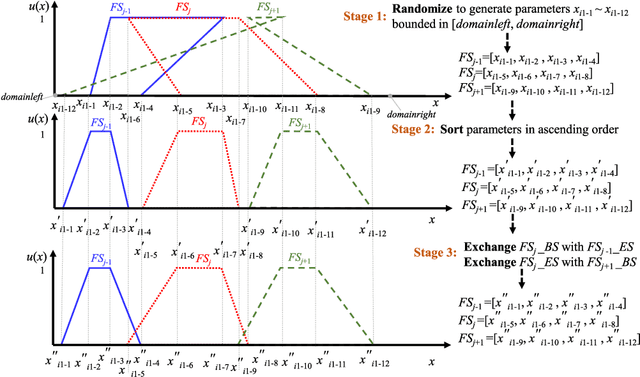
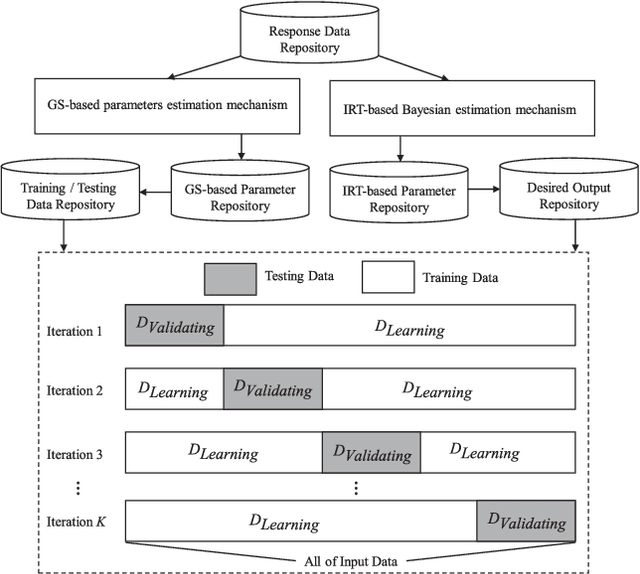
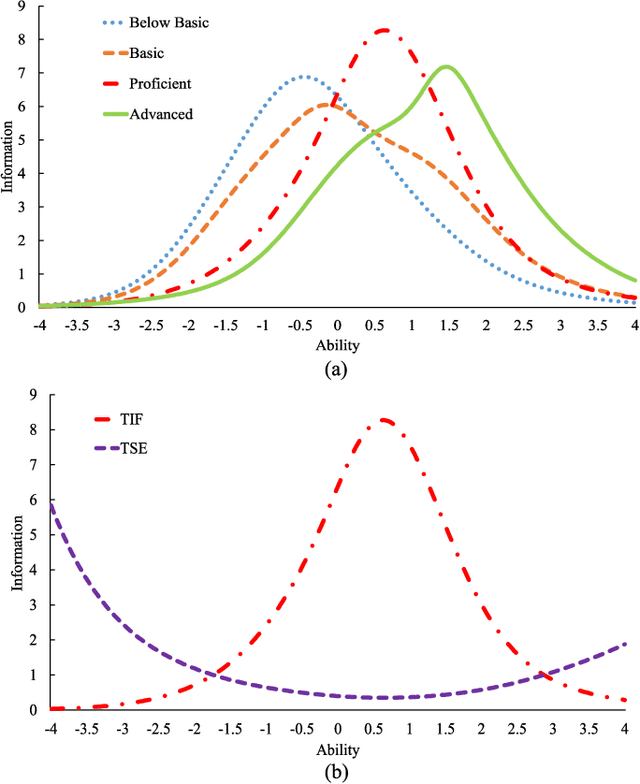
Abstract:This paper proposes an agent with particle swarm optimization (PSO) based on a Fuzzy Markup Language (FML) for students learning performance evaluation and educational applications, and the proposed agent is according to the response data from a conventional test and an item response theory. First, we apply a GS-based parameter estimation mechanism to estimate the items parameters according to the response data, and then to compare its results with those of an IRT-based Bayesian parameter estimation mechanism. In addition, we propose a static-IRT test assembly mechanism to assemble a form for the conventional test. The presented FML-based dynamic assessment mechanism infers the probability of making a correct response to the item for a student with various abilities. Moreover, this paper also proposes a novel PFML learning mechanism for optimizing the parameters between items and students. Finally, we adopt a K-fold cross validation mechanism to evaluate the performance of the proposed agent. Experimental results show that the novel PFML learning mechanism for the parameter estimation and learning optimization performs favorably. We believe the proposed PFML will be a reference for education research and pedagogy and an important co-learning mechanism for future human-machine educational applications.
FML-based Dynamic Assessment Agent for Human-Machine Cooperative System on Game of Go
Jul 16, 2017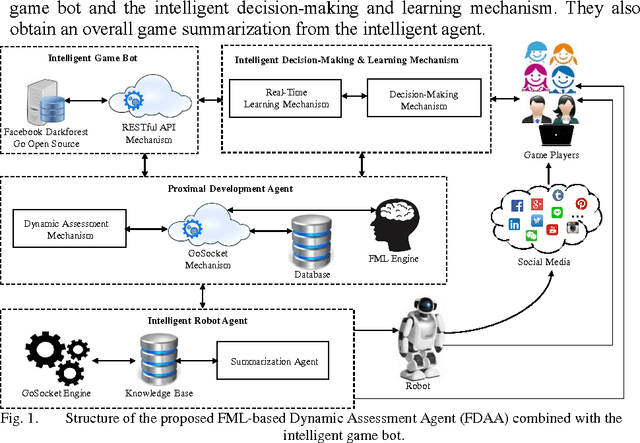
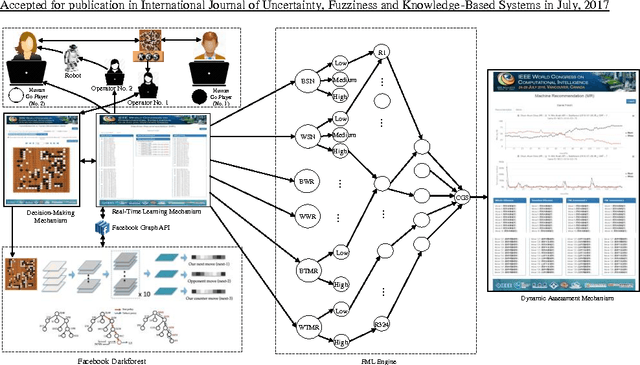
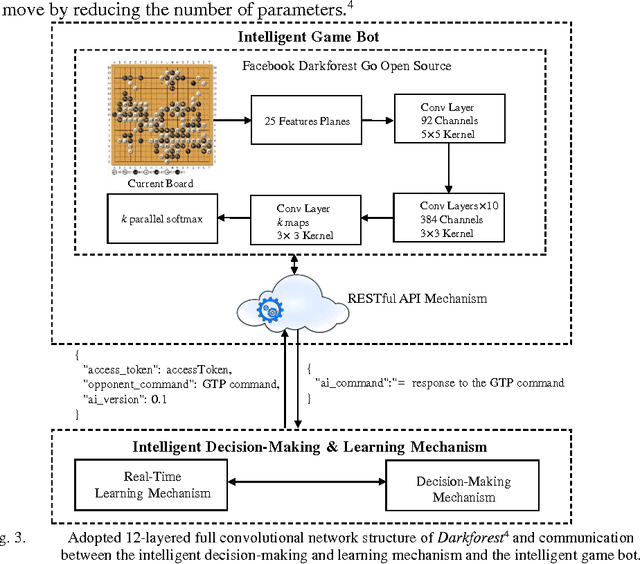

Abstract:In this paper, we demonstrate the application of Fuzzy Markup Language (FML) to construct an FML-based Dynamic Assessment Agent (FDAA), and we present an FML-based Human-Machine Cooperative System (FHMCS) for the game of Go. The proposed FDAA comprises an intelligent decision-making and learning mechanism, an intelligent game bot, a proximal development agent, and an intelligent agent. The intelligent game bot is based on the open-source code of Facebook Darkforest, and it features a representational state transfer application programming interface mechanism. The proximal development agent contains a dynamic assessment mechanism, a GoSocket mechanism, and an FML engine with a fuzzy knowledge base and rule base. The intelligent agent contains a GoSocket engine and a summarization agent that is based on the estimated win rate, real-time simulation number, and matching degree of predicted moves. Additionally, the FML for player performance evaluation and linguistic descriptions for game results commentary are presented. We experimentally verify and validate the performance of the FDAA and variants of the FHMCS by testing five games in 2016 and 60 games of Google Master Go, a new version of the AlphaGo program, in January 2017. The experimental results demonstrate that the proposed FDAA can work effectively for Go applications.
 Add to Chrome
Add to Chrome Add to Firefox
Add to Firefox Add to Edge
Add to Edge